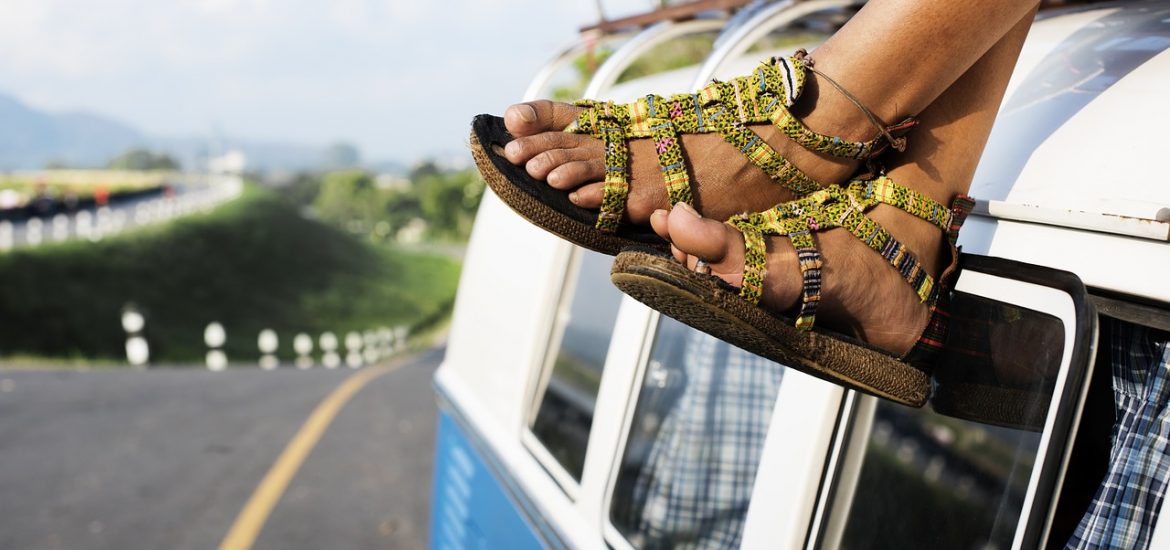When we’re young and carefree, part of the fun of a road trip is its unpredictability. It’s always fun to take spontaneous detours, follow intriguing signs, or switch up your destination on a moment’s notice. And if we’re being completely honest, there’s even a certain appeal to breaking down or getting a flat in some quirky small town — at least, as long as the repairs don’t blow your travel budget!
As we get older, however, the idea of being stranded in a strange place is much less appealing. Safety and security become much more attractive than adventure (here’s how you can protect your home while traveling). Want your next road trip to go smoothly, with no hiccups or hassles? Read on for some essential safety tips!
Know Where You’re Going
It’s tempting to just jump in the car and set out on your travels, knowing that if you ever get lost, your smartphone’s GPS will come to the rescue. Unfortunately, however, you cannot always rely on cell service. You might be in a remote location far from towers, or maybe your provider just doesn’t provide good coverage in that particular area.
Planning your trip in advance will pay off. Before you depart, print out maps of your route, or go truly old-school with a bound atlas or state map. You can still rely on your phone to guide you, but this way you’ll be covered in case service is spotty — or you forget your charger!
Opt for Roadside Assistance
Roadside assistance provides real peace of mind. You can always sign up for AAA or OnStar, but there is also a possibility that your car insurance already offers this service. And if you’ve purchased either a new or certified used car recently, chances are you’re covered with a roadside assistance plan for the duration of your warranty.
Be Prepared with Emergency Supplies
You might think that food and water will always be just an exit away, that between your cell phone and your roadside assistance, you will keep in communication with the world, and that accidents couldn’t possibly spoil your trip. But the truth is, you simply never know what emergencies might crop up. So why not be prepared for them just in case?
A few essential items to carry with you — not just on a trip, but at all times — include the following:
- Bottled water
- Non-perishable food, like granola bars, trail mix, crackers, or beef jerky
- Warm blankets and a change of clothes
- A flashlight
- Jumper cables
- Emergency flares
- A selection of tools
- Portable chargers or power banks for your devices
- A first-aid kit
- Duct tape
It won’t take much time or money to order these items online and stash them in your trunk, and there may come a day when you’ll be glad you did.
Brush Up on Highway Driving
Driving America’s highways or its byways? Both have their advantages. Slow down and cruise the back roads whenever there’s a beautiful view, or plenty of attractions to explore. (World’s Largest Ball of Twine, anyone?)
To save time when there’s not much in the way of sightseeing, stick to the interstates and other highways. Before you use that on-ramp, however, brush up on safety tips for driving when there are lots of tractor trailers and other commercial vehicles on the road.
“Semi-trucks and large buses have huge blind spots all around them,” says Shari C. Boscolo of ChasenBoscolo, a firm of Northern Virginia trucking accident lawyers. “A good rule of thumb is to make sure you can see a driver’s side mirror, which means he or she can see you.”
The Takeaway
Your freewheeling, footloose, and fun-loving younger self might have scoffed at this level of preparedness, but let’s face it: you’re older now, and wiser. An emergency — whether it’s a mechanical issue with your car, an accident with a semi-truck, or an unfortunate injury to one of your passengers — is going to ruin your road trip faster than you can say “Are we there yet?” So take a little time in advance of your next adventure to ensure safe travels on the wide-open road.

